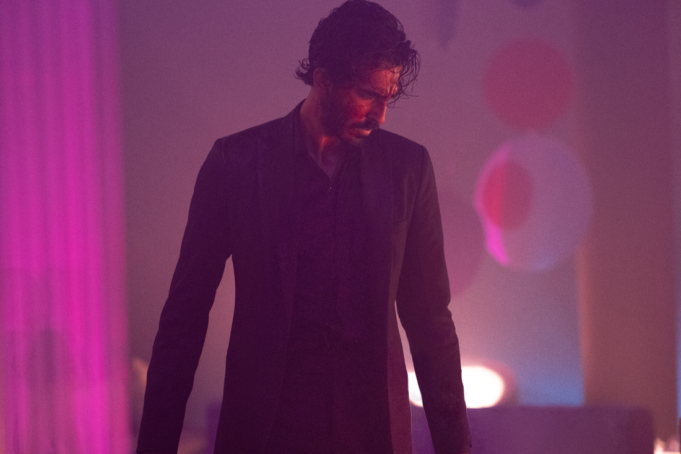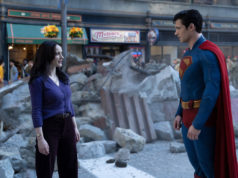You’ve probably heard that Monkey Man is Dev Patel’s directing debut and that it’s an action thriller that kicks all kinds of ass in a heavily stylized John Wick kind of way. All that stuff is true, and yet I find other things interesting about this. Netflix bought this film three years ago for $30 million and then let it sit on the shelf until Jordan Peele bought the rights last year for $10 million and is using his connections with Universal Studios to distribute it.
Why would Netflix essentially eat the cost of their initial deal just to watch a competitor reap the profits? It has to do with cultural, political, and religious reasons specific to India, where the film is set. If you follow international affairs, you know that Prime Minister Narendra Modi has been steadily suppressing dissent at home in an attempt to turn India into a Hindu homeland with non-Hindus relegated to second-class citizenship. Some pro-Modi flourishes aside, Bollywood still at least pays lip service to the idea that the country is tolerant and multicultural. In a nation with so many religions and so many adherents ready to kill public figures who say the wrong thing, movies mostly avoid the topic of religion, although Rajkumar Hirani’s 2014 satire PK is a brilliant exception.
This film turns on an evil conspiracy among a Modi-like candidate for prime minister, a power-mad religious guru (Makrand Deshpande), crooked cops, and sex traffickers. You can see how that might displease India’s current government, and Netflix has an interest in maintaining good relations with the world’s most populous country to produce and distribute Indian content. (After all, RRR became a hit on the strength of its Netflix views.) Well, the streamer’s expediency — or cowardice, depending on how you look at things — is now the gain of our movie audiences, because Monkey Man is a sight to see on the big screen.
Patel plays a man in Mumbai who wears a gorilla mask and takes beatings in an underground wrestling ring for money. He gives the name “Bobby” to his colleagues, but that’s clearly not his real name. He finagles his way into a job working for a mob boss (Ashwini Kalsekar) who brings sex slaves into India and hooks them up with wealthy foreign letches at her nightclub. Bobby’s disgusted at having to serve champagne to these people and look away while they grope the women, but he’s playing a long game that isn’t revealed until two-thirds of the way through the film.
The first action sequence doesn’t come until about 40 minutes into this 2-hour film, when Bobby botches a hit on Mumbai’s police chief (Sikandar Kher) in the nightclub’s men’s room. A delay that long would never pass muster in an Indian thriller, and even Western audience members might find their patience tried, but the extended brawl, shootout, and car chase that results is worth the wait. It frequently rankles Indian audiences and tastemakers when foreign movies show that poverty in their country is still a thing (see: Slumdog Millionaire and The Avengers), and the director’s revelry in the grime of the city’s lower reaches was probably a factor in Netflix offloading the film.
The movie’s title refers not only to Bobby’s wrestling mask, but also to the Hindu monkey god Hanuman, whose legend is overtly referred to in the story (and also in M’Baku’s character arc in Black Panther). One other bit of distinctiveness is an interlude when a gravely wounded Bobby is taken in by a sect of hijras, a recognized third gender in Indian culture that’s neither male nor female. Their leader (Vipin Sharma) tells Bobby that he is safe as long as he stays with them, because the police won’t venture into their territory for fear of being infected by whatever. When Bobby recuperates and punches a bag of rice that’s doubling as a heavy bag, a tabalchi (portrayed by legendary tabla player Zakir Hussain) plays a rhythm on his drums that Bobby follows with his blows, and it’s a very pleasing effect.
If the cultural anthropology of all this does nothing for you, Monkey Man still has its fight sequences, which Patel dominates with his tall, stylish, long-striding presence. (Right now, Bollywood tends to prefer its action heroes muscled up like John Abraham and Ajay Devgn, although the relatively lithe Hrithik Roshan is a kindred spirit to Patel.) French fight choreographer Brahim Chab stages the fights in a grounded way. Instead of heroes flying through the air and punching helicopters out of the sky, here we have Bobby slamming a bad guy’s head into a toilet and the baddie’s blood splattering the feces in the bowl. An Indian thriller would never show us that, nor would it let its hero fight so tooth-and-nail as to bite his enemy in the face. Bobby’s climactic showdown with that police chief takes place on the nightclub floor, and the camera frequently shows their reflections in the mirrored tiles on the ceiling and floor as well as the mirrored ornaments hanging from the ceiling.
That illustrates how Patel combines Indian sociopolitical issues with Western techniques to create something crackling with neon-lit electricity. People have mooted the idea of Patel playing the next James Bond, but watching him embody a new kind of action hero amid this unique act of cinematic fusion is better than seeing him as any established character. Bobby may or may not be dead as Monkey Man ends, but we definitely could use more films like this in our local movie theaters.
Monkey Man
Starring and directed by Dev Patel. Written by Dev Patel, Paul Angunawela, and John Collee. Rated R.












